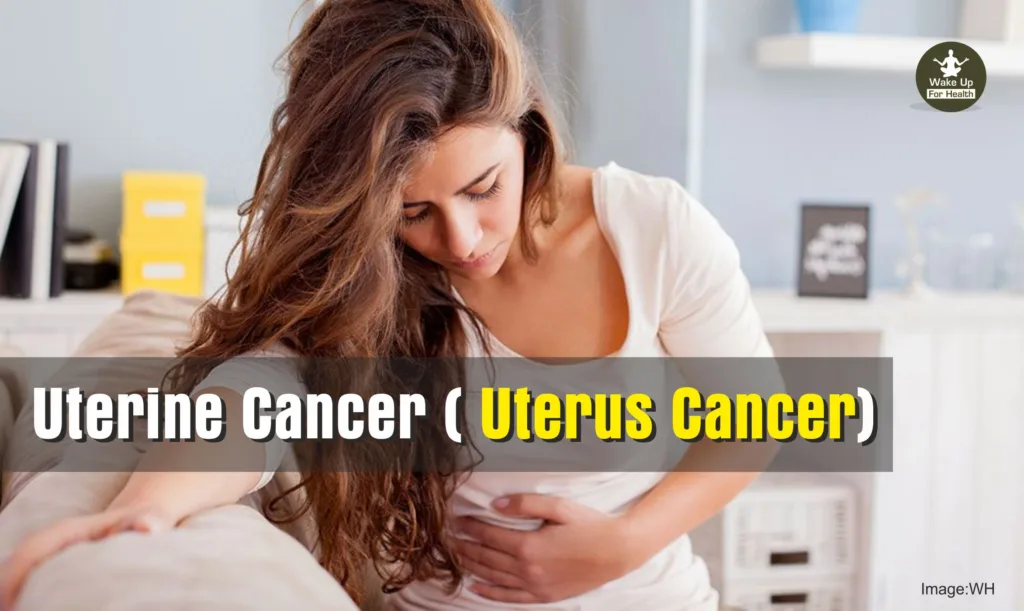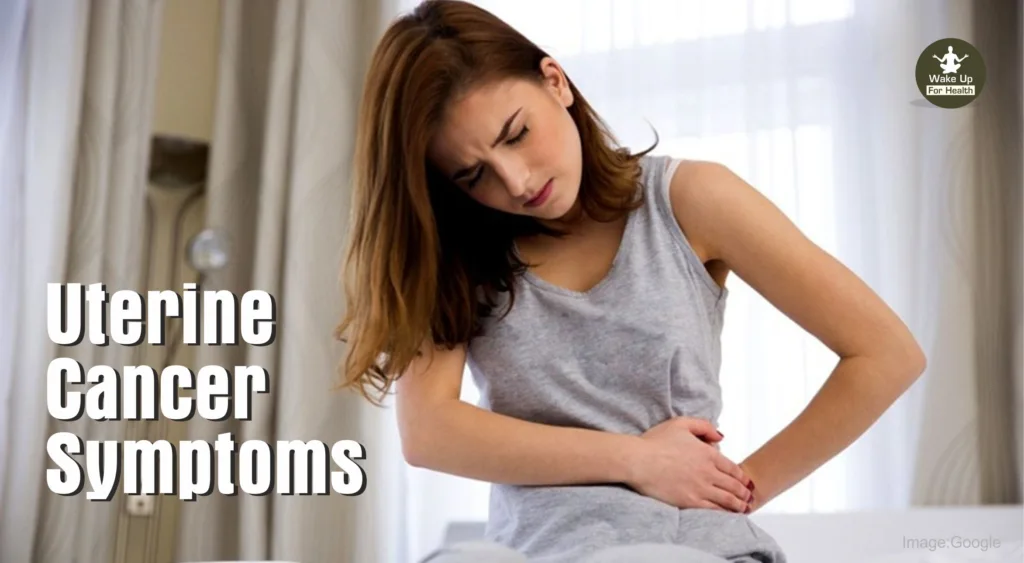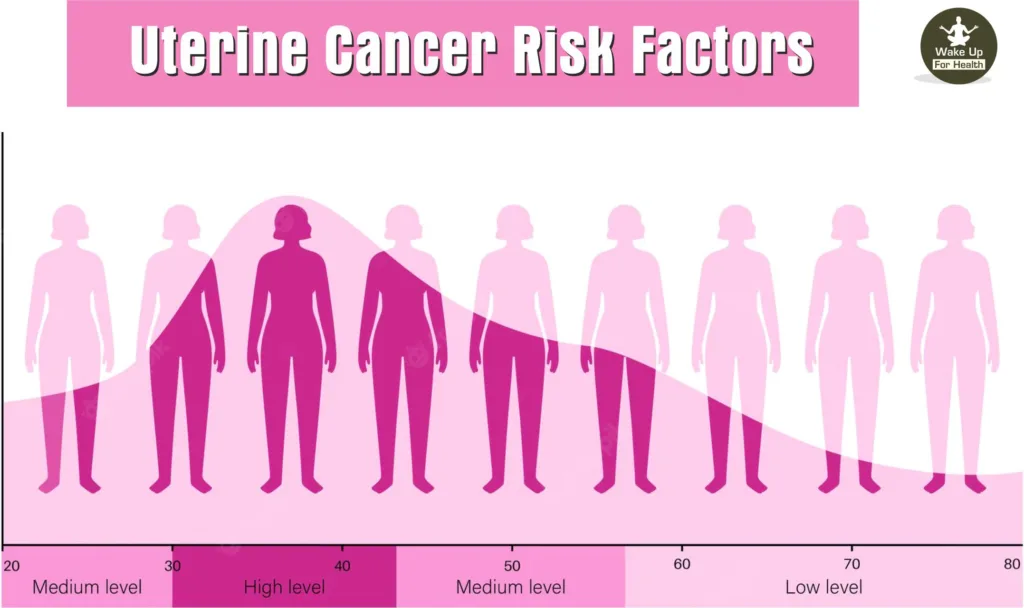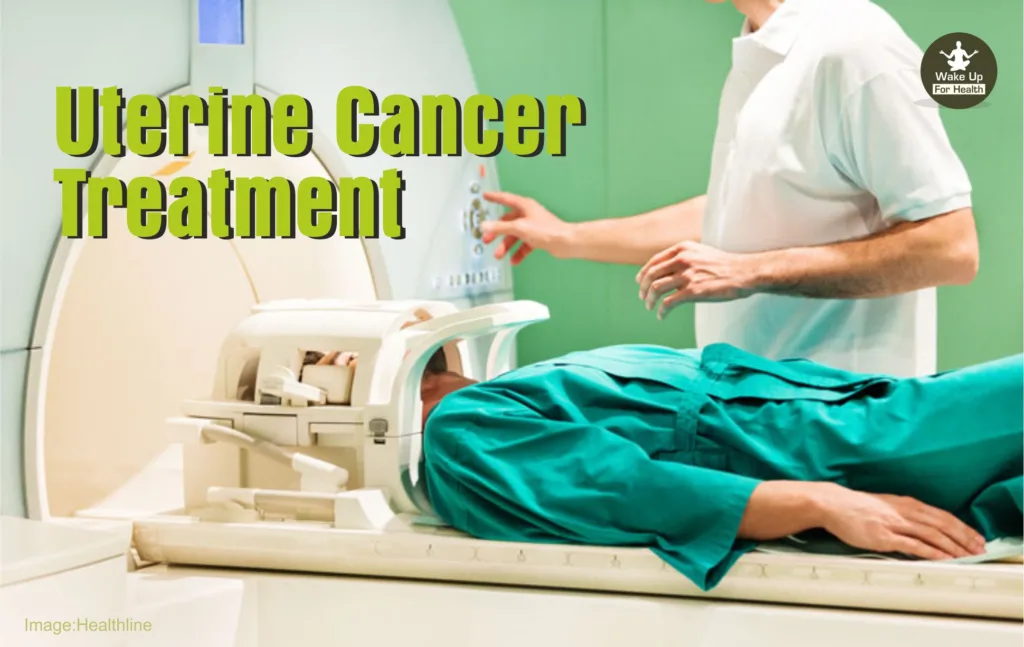Uterine Cancer or Endometrial Cancer is a type of uterine cancer that begins in the layer of cells that make up the lining of the uterus, called the endometrium. Most cancers of the uterus are endometrial cancer, which is why it is sometimes known as uterine cancer or Endometrial Cancer. If left untreated, endometrial cancer can spread to the bladder or rectum. Although this cancer grows slowly, due to this it is necessary to be diagnosed and treated on time. You will learn about Cancer in the Uterus. We will know below about Uterine Cancer Symptoms, Uterine Cancer Causes, Uterine Cancer Diagnosis and Endometrial Cancer Treatment.
Understanding Endometrial Cancer, Symptoms, Diagnostic Methods, Treatment Options, Preventive Measures

Cervical cancer is a type of uterine cancer that begins in the endometrium or inner lining of the uterus. This lining is called the endometrium. This is the most common type of uterine cancer. It is also known as endometrial cancer or sometimes uterine cancer.
According to the National Cancer Institute, about 3 in 100 women will develop cancer of the uterus or cervix at some point in their lifetime. Cervical cancer can be detected at an early stage, as it causes abnormal vaginal bleeding. If this cancer is detected at the earliest, the life of the concerned woman can be saved by surgically removing the uterus.
Read Also : AIDS | HIV and AIDS Treatment | HIV Symptoms, Causes, Diagnosis and Prevention | Antiretroviral Drugs
What are Endometrial – Uterine Cancer Symptoms?

The most common symptom of Endometrial Cancer is abnormal vaginal bleeding. Other symptoms may also appear, including:
• Change in menstrual periods or heaviness
• Spotting or vaginal bleeding between periods
• Vaginal bleeding after menopause, etc.
Other possible symptoms of endometrial cancer include:
• Watery or blood-colored vaginal discharge
• Pelvic pain
• Pain during sex.
If a woman experiences any of these symptoms, she should contact a doctor immediately. These symptoms are not necessarily a sign of a serious condition, but it is important to get them checked out.
What are Endometrial (Uterine) Cancer Stages?
Cervical cancer can spread from the uterus to other parts of the body over time. Endometrial cancer is classified into four stages depending on how much the cancer has grown or spread, which are as follows:
• 1st Stage Endometrial Cancer – In this stage the cancer is confined to the inside of the uterus only.
• 2nd Stage Endometrial Cancer – In this stage the cancer has spread to the uterus and cervix.
• Stage 3rd Endometrial Cancer – In stage III endometrial cancer, the cancer has spread outside the uterus, may be present in the fallopian tubes, ovaries, vagina, but has not spread to the rectum or bladder.
• Stage 4 Endometrial Cancer – In the fourth stage of uterine cancer, the cancer has spread beyond the pelvic area. It may be present in the bladder, rectum or distant organs.
How much you know about : Teenage Stress | Causes of Teenage Stress | How Parenting of Parents Reduce Teenage Pressure
What are Endometrial Cancer – Uterine Cancer Causes?
In most cases, the exact cause of uterine cancer is unknown. However, experts believe that cancerous conditions can arise as a result of changes in the levels of estrogen and progesterone in the body.
When sex hormone levels fluctuate, these changes affect your lining (endometrium). When estrogen levels increase, it causes endometrial cells to divide and clump together. If certain genetic changes occur in the endometrial cells, they can form cancer or tumors.

What are Risk Factors of Endometrial Cancer (Uterine Cancer)
The risk of developing Uterine Cancer increases with age. Most cases of uterine cancer are seen mostly between the ages of 45 to 74 years. The increase in estrogen levels mainly increases the risk of uterine cancer.
A Number of Risk Factors can increase the Risk of Uterine Cancer or Endometrial Cancer, including:
• • Changes in Sex Hormone Levels
• • Family History of Cancer
• • Suffering from Granulosa Cell Tumors or Ovarian Tumors (Varian Tumors)
• • Suffering from Polycystic Ovarian Syndrome
• • Endometrial Hyperplasia Condition
• • Estrogen Replacement Therapy
• • Taking Tamoxifan (a drug for breast cancer)
• • Being obese
• • Suffering from Diabetes
History of Pregnancy: If you have never been pregnant, you are more likely to develop endometrial cancer. Women who have taken birth control pills are much less likely to develop endometrial cancer after menopause.
How to Diagnose Endometrial Cancer?
If you develop symptoms related to uterine cancer, you should immediately consult a gynecologist. The doctor may ask some questions about your symptoms and medical history to diagnose uterine cancer. Apart from this, the following tests can be taken to check for cancer, which include:
• Pelvic Examination For Uterine Cancer
The doctor may do a pelvic examination to look and feel for abnormalities in the uterus and other reproductive organs.
• Transvaginal Ultrasound For Uterine Cancer
To check for tumors or other abnormalities in the vagina or reproductive organs, a transvaginal ultrasound test can be used which is a very important test.
If any abnormalities are detected in the vaginal area during the ultrasound test, the doctor may order one or more of the following tests for further testing:
• Endometrial Biopsy For Uterine Cancer
During this test, the doctor inserts a thin flexible tube into your uterus through the cervix to check for cancer in the fallopian tubes. A small sample of tissue from the endometrium is collected through this tube.
• Hysteroscopy For Uterine Cancer
In this procedure, a thin flexible tube with a fiber optic camera is inserted through the cervix into the uterus. They use this endoscope to look for abnormalities of the endometrium and to collect biopsy samples.
• Dilation and Curettage (D&C)
If the biopsy results are unclear, the doctor may recommend a D&C test to the patient, in which a sample of uterine tissue is collected.
Its Helpful Also : TMJ – Temporomandibular Joint Disorder | TMJ Treatment, Procedure and Side Effects
What is Uterine Cancer – Endometrial Cancer Treatment?

Several options exist for the treatment of endometrial cancer. The doctor can choose the best course of treatment based on the stage of cancer and overall health. The following treatment procedures can be adopted to treat uterine cancer:
Uterine Cancer Treatment Surgery
Surgery is used to treat uterine cancer, which is called hysterectomy. During a hysterectomy, a surgeon removes the uterus. The doctor may also remove the ovaries and fallopian tubes during the surgery.
If the cancer has spread, the surgeon will also remove lymph nodes near the uterus. This is known as lymph node dissection or lymphadenectomy.
Radiation therapy for uterine cancer.
Radiation Therapy Uses High– Energy radiation to destroy cancer cells. There are two main types of radiation therapy used to treat uterine cancer:
• External Beam Radiation Therapy
In this radiation therapy, a beam of radiation is directed at the uterus from outside the body through an external machine.
• Internal Radiation Therapy
In this radiation therapy, radioactive material is placed inside the body, in the vagina or uterus. It is also known as brachytherapy.
Chemotherapy treats Endometrial Cancer.
Chemotherapy is the use of drugs to kill cancer cells. Some types of chemotherapy involve a single drug, while others involve a combination of drugs. Depending on the type of chemotherapy, the drugs may be given in pill form or through an intravenous route.
Hormone Therapy for Endometrial Cancer.
Hormone therapy involves the use of hormones or hormone-blocking drugs to replace the body’s hormone levels. This treatment procedure helps to slow down the growth of uterine cancer cells.
What are Endometrial (Uterine) Cancer Preventions?
The following methods can be adopted to avoid uterine cancer and reduce the risk of developing endometrial cancer:
• Maintain a Healthy Weight
If you are overweight or obese, reducing obesity and losing weight can reduce your risk of endometrial cancer.
• Get Regular Exercise
Getting regular physical activity reduces the risk of getting uterine cancer. So make it a habit to exercise regularly.
Taking birth control pills reduces the risk of uterine cancer, so consult your doctor before taking them.
This Article was based on “Uterine Cancer (Endometrial Cancer) Symptoms, Causes, Diagnosis & Treatment“. How did you like this article, do tell us by commenting.
(Disclaimer : The purpose of this health-related article is to wake you up and aware of your health and to provide health-related information. Your doctor has a better understanding of your health and there is no substitute for their advice.)